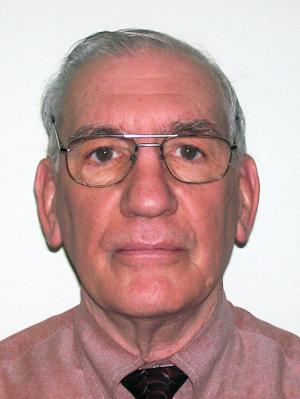
By Glenn Leach
When the floods of 2008 hit our Diocese of Davenport, Catholics responded. Individual parishes, particularly in the days immediately following the flooding, fed volunteer workers, cleaned flood-damaged homes, provided spiritual counseling for affected families and donated generously to the call for flood aid. Teams of teens and adults from mixtures of parishes cleaned up and later helped to rebuild.
As a member of the chancery staff, I became a member of one of the Iowa gubernatorial flood commissions, providing information to the governor, based on what we experienced in the diocese. Later, I worked with the long-term recovery committees serving Des Moines, Muscatine, Louisa, Johnson, Scott, Wapello and Cedar counties and provided those committees with funds donated to the diocese for flood relief.
In addition to the long-term recovery committees, funds went to foundations and assistance organizations in Oakville and Columbus Junction. The diocese received a total of $327,518.52 from individuals and organizations from across the diocese and country. We received substantial donations from the Diocese of Sioux City and the Diocese of Des Moines, and from the Archdiocese of Dubuque, which also sustained extensive damage. Even the Naval Air Station in Jacksonville, Fla., was a donor! We completed distribution of all funds last month.
The assistance went to people of all faiths (and none). We helped, not because the recipients might be Catholic, but because we are!
The diocese provided financial aid to early responding organizations for immediate assistance, but provided the bulk of its support funds to caseworkers working for the long-term recovery committees in the counties. After survivors have exhausted all other relief from insurance (if they had any), the Federal Emergency Management Agency (FEMA), and the Small Business Administration (which makes low-interest loans to disaster-affected families), they come to the recovery committee caseworkers with their unmet needs.
Caseworkers bring together donated materials, funds and labor to help satisfy the needs. Typically, a caseworker would write checks to local building supply firms and furniture and appliance stores using donated funds for the items needed to make a damaged home safe and livable. Purchased goods were combined with donated materials and labor to install the items and do the necessary repairs. This form of stewardship assures that the donations went for essential items and that items were not purchased if they were available through a donation.
The needs continue in Johnson, Louisa and Muscatine counties. There are still areas with extensive damage and elderly or handicapped folks who did not receive the help they needed early on due to their inability to cope with the systems available. Hundreds of thousands of dollars are still needed in those areas. Cedar County, which was among the last to set up its recovery committee, still has needs — but to a lesser extent.
The lesson learned was that preparation made a significant difference. The communities that had response networks in place began getting help to their survivors faster, and were best able to take advantage of the multitude of aid sources, whether governmental, faith-based or nonprofit.
The diocese has developed a comprehensive disaster preparedness manual for parishes and families available at www.davenportdiocese.org/disaster/disasterlibrary/DisasterManual05282009.pdf. The diocese is assisting FEMA in going to counties that do not have disaster preparedness committees to urge their creation, and is prepared to work with parishes or parish groups in disaster planning.
For additional information, contact Deacon David Montgomery (diocesan disaster planner) or me (social action volunteer) at (563) 324-1911.
(Glenn Leach is a volunteer in the Davenport Diocese’s social action department.)








